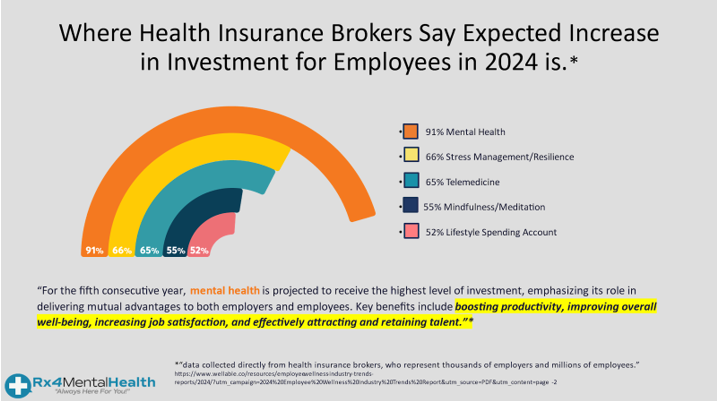You can do a lot without meds. In fact, you can do more than you think you can do without taking meds. America is addicted to medications. Not addictive medications like opiates, although too many are.
America relies on medications too much for getting through the basics of life. When we can get by and
improve our life by doing simple, everyday things instead of taking a pill.
So why not do that then? The problem: It’s damn tough.
Research shows that exercise offers better outcomes for mental health for those who are challenged
with common ailments. Let’s be clear up front; some individuals have significant mental health issues
where medications truly help. Everyone’s medical goal in life, whether physical health or mental health,
should be to be off as many medications as possible and live a healthy life.
Everyone agrees that exercise and movement of any type is good for the body, but too few tout its
benefits for the health of the mind and the overall feeling of well-being.
The reasons for being off medications are somewhat obvious: No side effects and no cost. But getting
off medications can be very difficult for most of us. There is a great book called ‘The Comfort Crisis’
by Michael Easter. In essence he says that in order to achieve the life we want to achieve, we must
become comfortable with being uncomfortable in one way or another. What he means by that is the
point of this article.
Since 1994, exercise has shown very promising results in dealing with mental health issues. The
problem is that our mind is wired for slothfulness. It is wired to not move if we don’t have to. This is
believed to come from a ‘survival’ instinct in us. We are genetically built to be lazy. It takes energy and
being ‘uncomfortable’ to do exercise and who wants to do that?
This problem is multiplied in a cyclical fashion as well. Studies show that those who don’t exercise
become either obese or depressed. Both of those conditions cause inflammation. This leads to other
conditions like diabetes, heart disease, and cancer, among others. Studies revealed that those who are
obese are 55% more likely to develop depression, and those who are depressed are 58% more likely to
become obese! The tendency for those who are depressed is oftentimes to do nothing – the exact
opposite of what is required to beat obesity and depression. And, quite frankly, it is just easier to take
the medication, regardless of the side effects and costs.
Biochemically, exercise accentuates the effects of serotonin receptors, which are responsible for
antidepressant effects, and which are responsible for that great feeling of well-being. As well, exercise
increases blood flow to the brain which increases a chemical in the brain called BDNF (Brain-derived
neurotrophic factor), and this has several positive outcomes. First, BDNF improves brain cell growth and
development. Brains that are decreasing in size are more likely to have depression, attention deficit,
memory loss and lower cognitive function. Exercise increases brain size by increased blood flow (and
increased BDNF) and thus eliminates or greatly reduces depression, attention deficit, cognitive decline
and memory loss. Understandably, then, exercise has shown to increase academic scores in elementary
school children.
Regular exercise does not have to be daily or that intense to be beneficial. In older women, an exercise
program which only involved walking for three 60-minute sessions a week and using stretch bands for
resistance exercise showed reduction of depression, increased BDNF levels, and greater cognitive
function. In fact, walking as little as 30 minutes a day has shown reduction in most all mental and
physical ailments. (See video ’23 1/2 hours‘.)
On a different, but related point, researchers found that with the onset of specific antidepressant medications, the
SSRIs, which are Selective Serotonin Reuptake Inhibitors – and remember Serotonin receptors are
responsible for the feeling of well-being, a natural antidepressant, and the SSRIs inhibit Serotonin – that
almost all mass shooters are on SSRIs. SSRIs have shown to increase violence and suicide. As well, other articles
point to there being no difference in the effects of antidepressant medications and placebo pills.
The bottom line is that, if you can move, and can exercise, and you have any mental illnesses, exercise
will most probably reduce or eliminate your mental health symptoms.
Remember, you have to become ‘comfortable with being uncomfortable’ to beat many of the symptoms
of mental illness.





